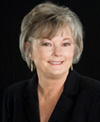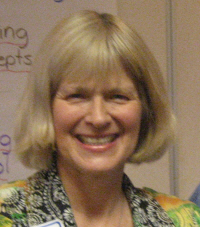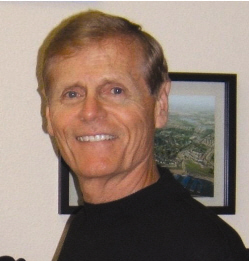

Research Study and Presentation by Suzanne Connolly, LCSW, LMFT,
Leanor Zarazua, MA, and John Freedom, CEHP
Suzanne Connolly, LCSW, LMFT, Leanor Zarazua, MA, and John Freedom, CEHP presented their study at the Research Symposium on Thursday, May 29, 2025 at the Association for Comprehensive Energy Psychology (ACEP) conference. The title of the study was A Teacher-Led Classroom Intervention In An Area of Mexico Experiencing Community Violence a Controlled Mixed-Method Feasibility Study.
Purpose: We aimed to explore the effectiveness of a daily ten-minute teacher-led group Thought Field Therapy stress-reduction intervention on middle-school adolescents residing in an area experiencing high levels of interpersonal and community violence. We hypothesized that it would lead to a reduction of trauma symptoms and improve grades in reading and math.
Method: In this double-blind feasibility study, adolescents in one school received a daily teacher-led Thought Field Therapy intervention, and children in a different school served as an active waitlist group and received the same amount of time in a daily unguided drawing activity. The two schools were geographically distant to prevent cross-contamination.
Results: Due to differences between groups in PTSD and academic performance prior to intervention, differences within each school’s scores over time were calculated and compared to each other for indirect assessment of effect. PTSD scores at the treatment school showed no lasting changes at five months, while the control school showed moderate improvement. Adolescents in the treatment group demonstrated large improvements in both reading and math. Adolescents in the control group demonstrated a moderate decrease in math, and no change in reading.
Discussion: Preliminary evidence gained in this study suggests that a teacher-led ten-minute group Thought Field Therapy exercise may assist adolescents’ learning in math and reading.
Presentation at the Association for Comprehensive Energy Psychology
by Suzanne Connolly, LCSW, LMFT
Suzanne Connolly, LCSW, LMFT also presented a seminar at the Association for Comprehensive Energy Psychology in Litchfield, AZ on Saturday, May 31, 2025. The title was Integrating CBT & REBT with TFT to Treat Negative Self-Assumptions & Shame.
Negative self-assumptions and shame can be deeply ingrained, but combining CBT, REBT, and energy psychology offers a powerful, efficient approach to transformation. Learn how these modalities work together to create rapid results through live demonstrations and immersive exercises.
Objectives:
Suzanne Connolly, LCSW, LMFT, is licensed as a clinical social worker, marriage and family therapist, and substance abuse counselor. She participated in three research studies in Rwanda that have been published in peer-reviewed journals. Suzanne serves as an advisor to Japan Association for TFT. She has conducted thought Field Therapy (TFT) trainings throughout the world.
Suzanne Connolly, LCSW, LMFT Presents the June Training for Members of the
Association for Comprehensive Energy Psychology
Members of the Association for Comprehensive Energy Psychology received the following e-mail:
The June 2025 member training is with Suzanne Connolly, LCSW. Learn about TFT and how it can benefit your healing practice.
Introduction to Thought Field Therapy
Thought Field Therapy (TFT) was the first of the “tapping” approaches. In this introductory workshop you will learn about the history of tapping approaches, the meridians used in all tapping approaches, and their association with different emotions. Discover a simplified use of algorithms you can use to help your clients deal with trauma, anger, shame and rage. Finally, you will learn how to use TFT as a non-verbal approach that can be used with many different populations.
Suzanne Connolly, LCSW has been a licensed clinical social worker, a marriage and family therapist and a substance abuse counselor for over 35 years. She is the author of Thought Field Therapy: Clinical Applications, Integrating TFT in Psychotherapy as well as several research studies on TFT. She has presented over 250 Thought Field Therapy workshops to mental health professionals all over the world, including Israel, Mexico, France, Canada, Kuwait, Rwanda and the U.S.

TFT practitioners have been bringing post-disaster trauma relief to places in the United States such as Charity and Oshener Hospitals after Hurricane Katrina, and training local therapists following the shootings at Columbine High School. TFT Practitioners in Japan also utilized TFT to help others in the aftermath of the Fukushima Earthquake and the resulting Tsunami. However, TFT practitioners have been especially active in low and middle-income countries such as Tanzania, Uganda, Rwanda, Mexico, and more recently the Kurdistan Region of Iraq where researchers found that Kurdish refugees responded better to TFT than CBT. Now, Professor and researcher Pegah Seidi will be leading a double-blind randomized controlled study with Women in camps for Internally displaced people (IDP). These camps are now home to just under one million IDPs from surrounding areas including Syria.
The study will begin during the second week of June, with the training of lay people residing in the camps to deliver the TFT interventions. The participants in the study will be adult women who are suffering from trauma. One group of participants will be an active waitlist group and receive relaxation exercises and the other group will receive the TFT treatments. There will be post-testing one week after the treatments and follow-up assessments three months later. We are excited to be able to offer TFT to a group of people who have suffered through several wars and somehow survived. We will keep everyone posted as things progress and of course, donations are always welcome. This is going to be a lot of people to eventually treat!
Suzanne Connolly, LICSW, will be in charge of treatment fidelity and supervise. She will register the study and ensure it meets high standards for finding a home in a top journal. She will help write up the study. Please help us and contribute to this humanitarian and research project. DONATE

Adrienne NAHAYO, clinical psychologist, shares with us the ongoing work in Rwanda. TFT is helping in the communities, the schools, and even the prisons. Take a few minutes and watch what these amazing and resilient people are doing to heal their country and people. Please consider helping us help them continue this work. It serves as an example the entire world can use.

By AUDUN IRGENS: Audun Irgens, PhD, specialist in psychiatry and senior consultant at Østre Agder District Psychiatric Centre, Department of Psychiatry, Sørlandet Hospital Arendal.
In large parts of the world, professional psychiatric resources are unavailable. Training laypeople to provide treatment could help extend service provision.
Worldwide, mental illness represents a greater burden of disability than any other disease category (1). In large parts of the world, there is a gap between the need for and the availability of professional psychiatric resources. In 2011, the World Health Organization estimated that 76–85 % of psychiatric patients in low-income countries receive no treatment (2). In those parts of the world, there is a widespread shortage of trained health workers (3).
In an editorial in issue 17/2021 of the Journal of the Norwegian Medical Association, Martine Rostadmo wrote: ‘The world is unfair. The report from 2019 points out that research and development are mostly undertaken in high-income countries and fail to focus on the needs of low-income countries’ (4).
One of the authors of this article participated in a meta-study that was the first to investigate the effect of psychiatric treatment provided only by lay counsellors. The study was published in the Bulletin of the World Health Organization in the summer of 2021 (5). The main finding drawn from 20 studies with a total of 5 612 participants was that lay counsellors can provide effective treatment of anxiety disorders, post-traumatic stress, depression and alcohol abuse in low- and medium-income countries. In the six studies that showed the best effect, the lay counsellors had been given 2–10 days of training (three studies: two days / two studies: one week / one study: ten days). In five of these studies, supervision was provided during the treatment sessions.
«Lay counsellors can provide efficacious treatment of anxiety disorders, post-traumatic stress, depression and alcohol abuse»
In other words, psychiatric treatment provided by lay counsellors who have undergone training and work under supervision can be an important contribution to extending effective psychiatric health assistance far more widely to people in low-income countries. This will also be significantly less resource-intensive and time-consuming than training a sufficient number of professionals. We therefore hope that the results of this study will be seen and used by national health authorities in many countries, as well as by Norwegian humanitarian aid authorities.
References:

Thank you to all of you who helped make this possible and continue providing TFT for healing in this traumatized nation. Below is the video showing the TFT prison work:
https://www.youtube.com/watch?v=VQP31rjXcfw
Please donate.


Joanne Callahan MBA
President
Co-developer of Thought Field Therapy®, and CEO of Callahan Techniques, Ltd. Joanne is a graduate of the University of California Santa Barbara and received her MBA in Healthcare Administration from California State University San Marcos.
She is Director of the Thought Field Therapy Training Center and publisher and editor of The Thought Field, a quarterly newsletter and Tapping for Humanity, a quarterly e-zine for the TFT Foundation. She is trained in TFT at the Advanced and Voice Technology levels and the only person other than Dr. Callahan certified to teach all levels of TFT.
Joanne Callahan co-authored Thought Field Therapy and Trauma: Treatment and Theory, and Stop the Nightmares of Trauma (with Forward by Jack Canfield, co-author Chicken Soup for Soul® Series), and Chapter 12, Thought Field Therapy: Aiding the Bereavement Process, in Death and Trauma: The Traumatology of Grieving and Tapping the Body’s Energy Pathways.
Joanne is President of the TFT Foundation, USA and on the board of directors for the UK chapter.

Jennifer Edwards
Treasurer
Jenny Edwards has searched her entire life for increasingly effective healing practices. When she heard of Thought Field Therapy in March 1997, she knew that one of her missions was to take it into Third-World countries. The following summer, she became trained in TFT Algorithms. As she began using it, she was impressed with the immediate results that it produced. In January 1998, she took the TFT Diagnostic training from Dr. Callahan. She began conducting trainings in the Denver area in June 1998.
She happened to be training a group of people in Nairobi, Kenya in August 1998 when the American Embassy was bombed. She was able to go to Kenyatta Hospital and help trauma victims eliminate their trauma, flashbacks, and pain from the bombing. Since then, she has given trainings around the world in French, Italian, Spanish, and English.
In 1999, she became trained in Voice Technology. She also holds Master Practitioner certification in Neuro-Linguistic Programming, as well as Clinical Hypnotherapist certification.

Bruce Paton PhD
Director
Bruce holds a BS in Engineering, and two advanced degrees in Business. His business career encompassed 21 years at Procter & Gamble and 18 years with Frito Lay, retiring as a VP of Operations. In addition to TFT Board responsibility, he serves as a local Housing Commissioner and is President of his family foundation. Bruce and his wife Dariah teach, consult and run TFT support groups. They travel extensively and work hard to keep up with four grandchildren in Texas and Alabama.
